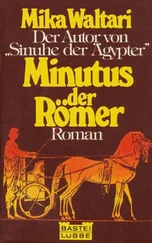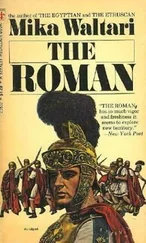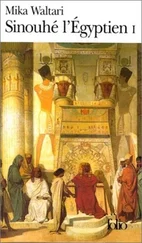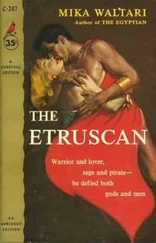“The matter is somewhat complicated,” I said, “and must be carefully considered. The diamonds being Muley-Hassan’s property form part of Khaireddin’s spoils of war; that’s to say they belong to the Sultan. We should get little reward for finding them; indeed they would only seek to extort the rest of the two hundred stones and suspect us of dishonesty if we were simple enough to hand over no more than those that by the grace of Allah have fallen into our hands. Yet we should be mad to leave the rest of this great fortune lying in the dirt.”
Such was also Andy’s opinion. We dared not breathe a word to anyone of our discovery, but postponed our journey from day to day. Every time we visited the boy he gave us two or three stones, for which we dared not offer more than one asper each, lest the sums he received should attract attention. However, I spoke to the Imam of Jamin’s mosque and left with him a sum sufficient for the support and schooling of the boy. If his intellect proved inadequate for reading and writing he was to be trained in some handicraft by which he could earn his living.
At the end of June, when we had collected one hundred and ninety- seven stones, the boy sadly showed us his empty hands, and though we visited him several times afterward, pleading and threatening, it was clear that either he had lost the three remaining stones or that Muley- Hassan had counted them wrongly. We then washed the boy, dressed him in good clothes, and led him to the Imam of the mosque, though he struggled and resisted with all his strength and would not be quieted even by Andy’s kindly words. Having thus salved our consciences we bade a hasty farewell to Abu el-Kasim, meaning to make for the harbor and take ship for Istanbul.
A distant boom froze us to the spot, and soon flocks of terrified fugitives were streaming into the city shrieking that the Emperor’s fleet had appeared before the fortress of La Goletta. The harbor was thus blockaded, and under cover of the unceasing cannonade the Spaniards landed many troops. My own greed had trapped me. I blamed myself bitterly for not having been content with fewer stones, so that I might have sailed from Tunis while there was yet time.
It was small comfort to learn that the Emperor had arrived at least a fortnight before he was expected, and now held the greater part of Khaireddin’s fleet trapped and helpless within the blockaded harbor. Only fifteen of his lightest galleys were able to seek shelter at other points along the coast.
We hastened to La Goletta to discover how true these reports were, and whether we might yet run the blockade in one of Khaireddin’s vessels. But from the tower we beheld the enemy fleet of not less than three hundred sail spread over the waters as far as the eye could see. Only a cannon-shot away, a large group of German pikemen were pouring ashore, and these at once began to throw up ramparts and palisades to protect their beachhead. To prevent Khaireddin’s fleet from breaking out, the great galleys of the Knights of St. John lay in the forefront; behind them I beheld the terrible carrack that like a floating hill rose high above the other vessels. From its four rows of gaping gun ports protruded the dark mouth of cannon. Doria’s slender war galleys, the sturdy caravels of Portugal, and Neapolitan galleasses covered the calm surface of the sea, and in the midst of them all rode the Emperor’s mighty flagship with its four banks of oars and its gilded pavilion gleaming on the high poop deck.
To Khaireddin’s credit be it said that the hour of danger brought out the best in him. Forgotten was his empty boasting; his bearing was assured, he drew in his belly, and in thunderous tones issued the necessary orders. The command of the Goletta fortress he entrusted to Sinan the Jew with six thousand picked janissaries-almost too large a garrison to be crammed into tower and fortifications. He sent Arabian and Moorish cavalry to oppose the landings and gain time. They could not prevent them, but they could at least keep the Imperial troops on the defensive both day and night.
Not until the camp had been strongly fortified did the invaders mount their guns and open the bombardment of La Goletta, and after this the cavalry dared not venture within range. And now the incessant, appalling din of artillery fire made life within the fort so unendurable that I left Andy on the battlements to watch with joyful wonder the progress of the conflict, and returned in deep dejection to Tunis.
Retreat by land was unthinkable, for the wild Berbers, whose hostility Khaireddin had aroused, controlled the roads and robbed all who sought to flee from the city. Muley-Hassan himself was not far away, though like a cautious man he had not yet joined the Imperial troops, despite his promises. But Charles had no need of his help, for his own army consisted of thirty thousand seasoned German, Spanish, and Italian mercenaries, and his artillery kept the area about La Goletta under continuous and accurate fire, so that many of Sinan’s Turkish janissaries were daily carried up the short way to Paradise. And every day fresh vessels brought warriors from all over Christendom to join the Emperor and in his sight win imperishable glory in the fight against the infidel.
Three weeks of savage warfare ensued, and despite the courage and religious zeal of the Moslem defenders only Abu el-Kasim refused to believe that Allah would give Christians the victory and through them bring Muley-Hassan back to power. And so I saw how even a shrewd, cunning man like Abu could be so blinded by happiness that for the sake of his wife and son he believed to the last only what he wished to believe.
La Goletta held out for a month, and this in itself was a miracle. Then the walls began to crumble, and the towers fell. When at last the Emperor ordered the general assault, Doria’s vessels rowed past the fortress in line, firing off their pieces as they went. The huge car- rack of the Knights of St. John anchored near the shore and fired unceasingly over the galleys. Then Sinan the Jew submitted to the will of Allah and blew all Khaireddin’s irreplaceable fleet out of the water, sending a vast column of smoke into the air and setting crockery clattering in the distant city.
The assault was launched from two directions at once. The Knights of St. John charged in from the sea, up to the waist in water, and when they and the Spaniards took possession of the fortress Sinan the Jew issued his last command-each man for himself! To set a good example he flung himself out across the salt marsh that surrounded the stronghold, having already prospected and marked a safe path across the swamps by which the survivors could reach the shelter of the city.
The muddy, bleeding little party staggered up to the gates of Tunis that evening, but at the tips of the staves to which the horsehair switches were attached Khaireddin’s silver crescents still gleamed, in token of the deathless honor won that day by the defenders of La Goletta.
Panic now seized the inhabitants of Tunis. All roads leading from the city were soon packed with fugitives carrying bundles and dragging loads in a blind rush to get as far away as possible. I would of course have joined them had not common sense told me that all would soon fall a prey to Muley-Hassan’s roving horsemen. Fortunately the Imperial troops had suffered so severely that for many days they rested in their camp to lick their wounds, and meanwhile Khaireddin with flattery, prayers, and threats contrived to calm the worst of the panic before summoning his captains, the most eminent men of Tunis, and also the leaders of his Arab allies to a ceremonial Divan in the great hall of the kasbah.
He spoke to them like a father, and as only he could speak when occasion demanded. His plan was to march out of the city and in the time-honored Moslem fashion offer the Emperor a pitched battle in the open. And indeed this scheme was less crazy than I at first believed, though I admit I listened in openmouthed wonder at his valor. So persuasively did he speak that Abu first among them all rolled up his sleeves, brandished his scimitar, and yelled that for the sake of his wife and son he meant to seek the road to Paradise. It is even possible that this behavior was not prearranged, for Khaireddin himself looked surprised. The eminent Tunisian gentlemen joined a little dubiously in the bloodthirsty shouts, and a spark of hope was kindled in my own dejected heart, since I am prone to believe whatever is told me with sufficient emphasis-especially if it is something I hope for.
Читать дальше











